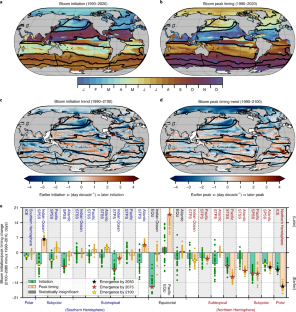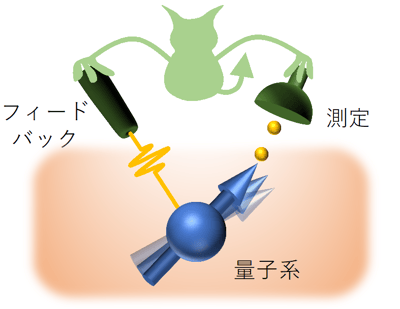2022-05-10 大韓民国・基礎科学研究院(IBS)
<関連情報>
- https://www.ibs.re.kr/cop/bbs/BBSMSTR_000000000738/selectBoardArticle.do?nttId=21281&pageIndex=1&searchCnd=&searchWrd=
- https://www.nature.com/articles/s41558-022-01353-1
栄養レベルのデカップリングが植物プランクトンの開花フェノロジーの将来的な変化を促進する Trophic level decoupling drives future changes in phytoplankton bloom phenology
Ryohei Yamaguchi,Keith B. Rodgers,Axel Timmermann,Karl Stein,Sarah Schlunegger,Daniele Bianchi,John P. Dunne & Richard D. Slater
Nature Climate Change Published: 09 May 2022
DOI:https://doi.org/10.1038/s41558-022-01353-1

Abstract
Climate change can drive shifts in the seasonality of marine productivity, with consequences for the marine food web. However, these alterations in phytoplankton bloom phenology (initiation and peak timing), and the underlying drivers, are not well understood. Here, using a 30-member Large Ensemble of climate change projections, we show earlier bloom initiation in most ocean regions, yet changes in bloom peak timing vary widely by region. Shifts in both initiation and peak timing are induced by a subtle decoupling between altered phytoplankton growth and zooplankton predation, with increased zooplankton predation (top-down control) playing an important role in altered bloom peak timing over much of the global ocean. Only in limited regions is light limitation a primary control for bloom initiation changes. In the extratropics, climate-change-induced phenological shifts will exceed background natural variability by the end of the twenty-first century, which may impact energy flow in the marine food webs.



